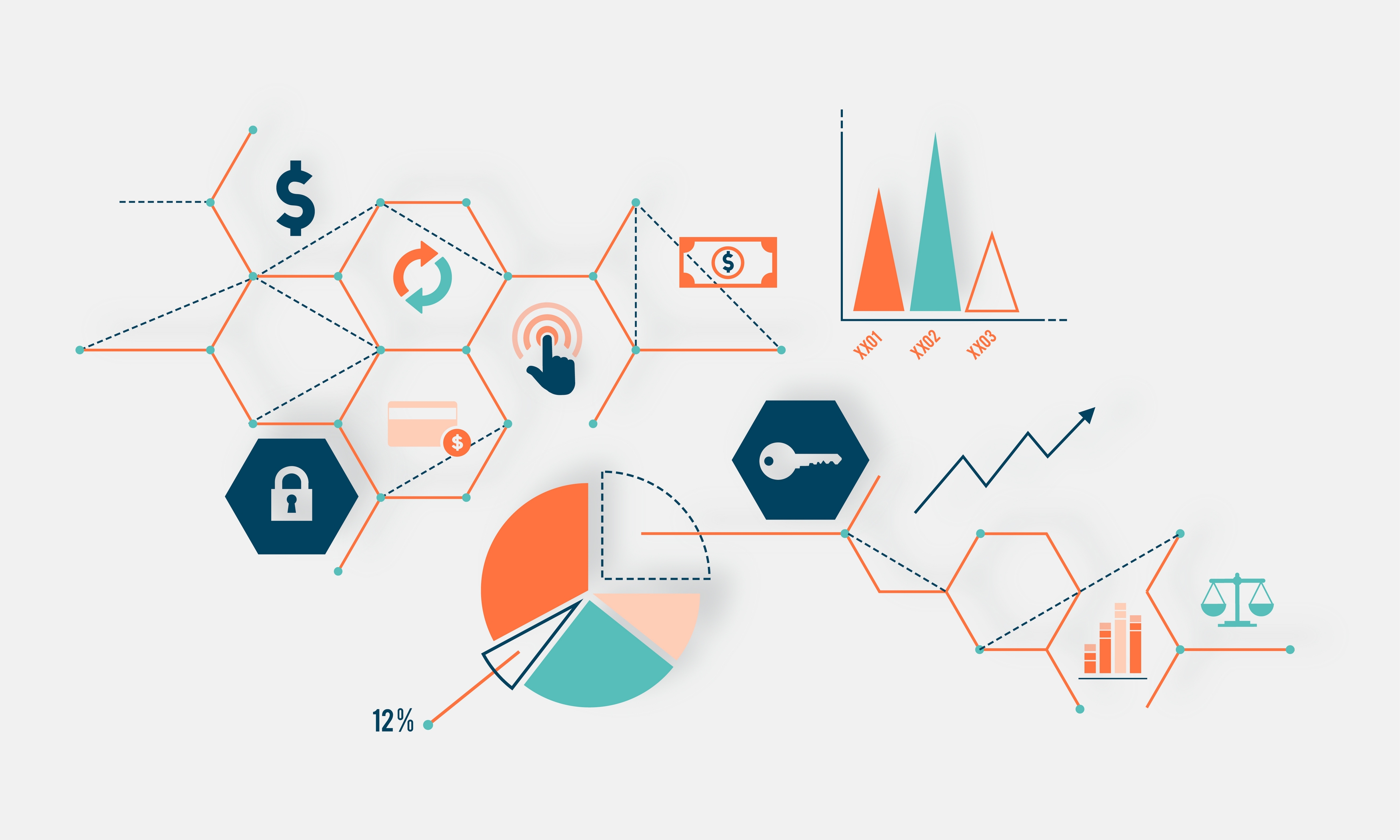Adaptive AI, the new future? In the current landscape of emerging AI technologies, business leaders and digital businesses must keep up with innovative approaches.
With its ability to learn and make real-time decisions, adaptive AI promises to revolutionise customer interactions, streamline operations, and foster continuous improvement. So, keep reading to be ahead of the trend!
Sneak peek:
1. What is adaptive AI?
2. The importance of adaptability in AI
3. Traditional AI vs. adaptive AI
4. Benefits of adaptive AI for business
5. Effective Strategies for Implementing Adaptive AI
6. The path forward for businesses and individuals
7. Want to learn more about AI?
8. FAQ
What is adaptive AI?
Adaptive AI represents a significant advancement from traditional rule-based AI models.
Adaptive AI is dynamic and self-directed, capable of altering its internal algorithms and decision-making processes by itself.
This continuous learning capability enables it to improve performance, making quicker and more accurate decisions. And this, without the need for human intervention.
Adaptive AI combines the principles of artificial intelligence with refined, responsive learning methods.
These systems are created to quickly adapt to changes.
They do this by regularly updating and retraining their models based on new information.
This continuous learning process allows adaptive AI to improve its performance over time.
This AI effectively responds to new challenges and achieves its objectives more efficiently.
At its core, adaptive AI is about flexibility and learning from experience.
It uses many techniques such as machine learning, neural networks, reinforcement learning, and evolutionary algorithms.
These technologies enable adaptive AI to:
- Recognise patterns
- Make predictions
- Adjust its behaviour in response to environmental changes, ensuring that it remains effective and relevant.

The importance of adaptability in AI
Adaptability is crucial for AI to keep up with our fast-changing world.
Traditional AI systems often struggle to handle new or unexpected situations because they operate within fixed parameters.
In contrast, adaptive AI can evolve and adjust in real time, making it essential for several reasons:
-
Resilience: Adaptive AI is more resilient. It can quickly update its algorithms and decision-making processes to stay effective in dynamic environments. This is particularly important in finance, healthcare, and cybersecurity, where quick responses to new information are vital.
-
Efficiency and Performance: Adaptability improves efficiency and performance. By learning continuously from new data, adaptive AI becomes smarter and faster. This reduces the need for constant human intervention, saving time and resources.
-
Personalisation: One of the key advantages of adaptive AI is its ability to personalise experiences for individual users. In retail and customer service, adaptive AI can tailor recommendations and responses to meet unique customer needs. This leads to higher satisfaction and loyalty.
-
Innovation: Adaptive AI drives innovation. Its flexibility allows it to be used in various complex applications. This goes from autonomous vehicles to smart cities, pushing technological boundaries and opening new possibilities.
In short, the adaptability of AI makes it more resilient, efficient, and innovative.
Most importantly, it enables personalised experiences.
This makes it a powerful tool for meeting the diverse needs of users in a rapidly changing world.

Traditional AI vs. adaptive AI
Still confused about the differences between adaptive AI and traditional AI?
Check this table to compare both of them and solve those doubts:

Benefits of adaptive AI for business
Adaptive AI brings numerous benefits to businesses, enhancing efficiency, decision-making, and customer satisfaction in many ways.
Here are 7 key benefits:
-
Increased efficiency: Adaptive AI automates repetitive tasks, freeing up human resources and boosting overall organisational productivity.
-
Improved decision accuracy: Adaptive AI reduces human error in decision-making by giving timely data-driven insights.
-
Personalised user experiences: Adaptive AI can identify individual customer preferences, enabling companies to offer customised services and products.
-
Competitive advantage: Using adaptive AI gives companies a strategic edge in efficiency and innovation, helping them outpace the competition.
-
Enhanced customer satisfaction: Adaptive AI enables quick and accurate customer interactions, leading to higher levels of consumer satisfaction and loyalty.
-
Cost savings: The combination of automated processes and precise decision-making results in significant cost reductions, allowing businesses to redirect resources toward strategic investments.
-
Better risk management: Adaptive AI is excellent at analysing data. How? By spotting risks early and enabling proactive measures to address them.
These benefits show how adaptive AI is crucial for businesses aiming to succeed in today's competitive world.

Effective Strategies for Implementing Adaptive AI
Time for some strategies!
Implementing adaptive AI successfully involves several key strategies to ensure optimal performance and integration into business operations.
Here’s how to approach it:
-
Develop a deep understanding: Begin by thoroughly understanding the problem you aim to solve with adaptive AI. This involves gathering relevant data and selecting suitable algorithms that support real-time adaptation.
-
Make informed decisions: Use actionable insights from adaptive systems to inform crucial business decisions. These insights provide a deep understanding of customer preferences and real-world changes, guiding business models and resource allocation.
-
Enhance customer experience: Use adaptive AI to tailor personalised experiences based on customer feedback and purchase history. This improves customer engagement and satisfaction, fostering long-term loyalty.
-
Ensure real-time adaptation: Implement adaptive systems capable of real-time decision-making and continual learning. This capability is crucial for handling dynamic environments and ensuring the system remains responsive to evolving conditions.
-
Monitor performance and feedback: Regularly evaluate the performance of adaptive AI using metrics aligned with business goals. Monitor real-time feedback to identify areas for improvement and refine system components accordingly.
-
Address ethical considerations: Maintain ethical standards by monitoring and mitigating biases in AI decision-making processes. Transparency in algorithmic decisions ensures fairness and builds trust with stakeholders.
By following these strategies, businesses can use adaptive AI to fuel innovation, boost efficiency, and provide exceptional customer experiences.

The path forward for businesses and individuals
Adaptive AI is coming to improve what it's already here: artificial intelligence.
With real-time intelligence and adaptability, this AI will improve user preferences, give a better content recommendation, and contribute to a new digital transformation.
Let's make sure to stay on top of all the latest AI trends - after all, they're shaping the future!
And who wants to be left behind, especially in business?
So, by adopting adaptive AI, businesses can:
- Navigate volatile market conditions with agility
- Enhance decision-making with integrated intelligence
- Enable real-time, optimised user interactions more effectively.
Want to learn more about AI?
You’re in the right place!
AI is a fascinating field and one that is building tremendous traction across the business landscape.
As technology advances, artificial intelligence applications for business are becoming more plausible in everyday practice.
AI is being used to save time and increase productivity outputs over many different roles and sectors.
This course will help you and your team boost productivity with AI solutions and make data-driven decisions for the future.
6 Modules | 24 lessons | 24 videos | 6 tests | 6 exercises
- Module 1: AI and Machine Learning Fundamentals
- Module 2: AI business strategy
- Module 3: GenAI for text: ChatGPT and prompt engineering
- Module 4: GenAI for design: text prompts and visual communication
- Module 5: AI for productivity
- Module 6: AI-powered predictive insights
👉 Check out our course here

FAQ
What is adaptive AI and why is it crucial for businesses today?
Adaptive AI is an advanced artificial intelligence system capable of learning from data and adjusting behaviour in real time. It has a transformative potential for enhancing decision-making through integrated intelligence and enabling optimised user interactions.
How does adaptive AI differ from traditional AI systems?
Adaptive AI differs significantly from traditional AI systems. How? By its ability to adapt and learn constantly from new information and customer demand.
Static AI models rely on fixed datasets. Adaptive AI systems, instead, employ techniques like transfer learning and unsupervised learning to evolve and improve over time.
What are some practical applications of adaptive AI across industries?
Adaptive AI finds extensive applications across a wide range of industries. This includes virtual assistants, recommendation engines, and autonomous systems such as self-driving cars. Its crucial role support personalised experiences, enhance business growth strategies and facilitate adaptive solutions for complex business processes.
How can adaptive AI contribute to financial decisions and business growth?
Adaptive AI empowers businesses to make informed financial decisions based on real-time data analysis and predictive modelling. By leveraging adaptive solutions and intelligent systems, businesses can optimise resource allocation, forecast demand accurately, and drive sustainable growth in competitive markets.
What are the key challenges businesses face when implementing adaptive AI?
Implementing adaptive AI requires robust development services, continual monitoring mechanisms, and deep learning and understanding of algorithmic processes. Businesses must address challenges such as ethical considerations, ensuring fairness in decision-making, and managing the environmental impact of AI technologies.

















